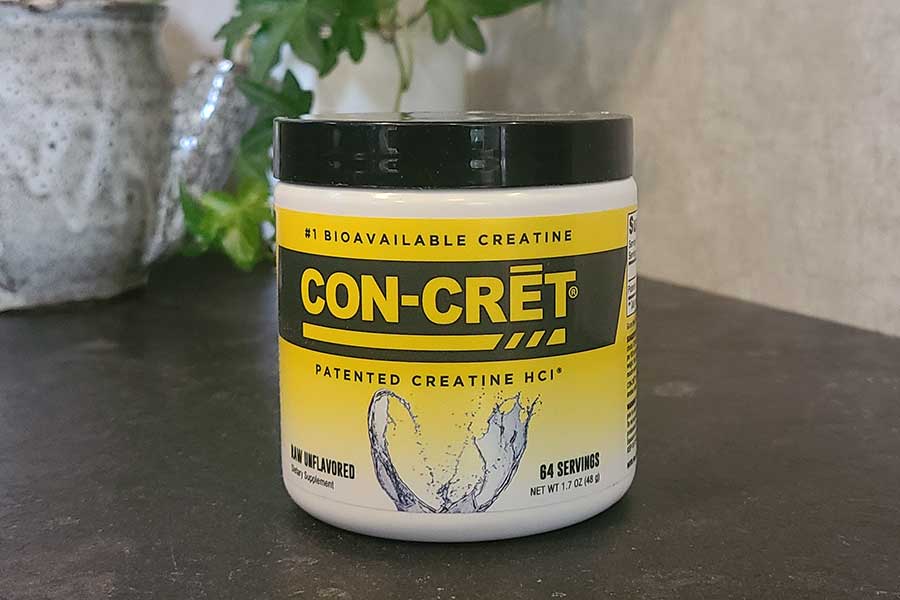Creatine is the most-studied sports nutrition supplement in the world, with clinical trials proving its efficacy dating back to the 1980s, according to a 2018 literature review in the journal Sports Health1. There are an insane amount of creatine products on the market; perhaps even more than there are pre-workout supplements.
This can make choosing a creatine powder very difficult. That’s why we bring you in-depth reviews on various supplements, such as this Con-Cret Creatine review, in which we’ll give you the truth about the patented, supposedly ultra-bioavailable creatine hydrochloride supplement.
RELATED: Creatine Benefits
Medical disclaimer: This article is intended for educational and informational purposes only. It is not intended as a substitute for medical advice. For health advice, contact a licensed healthcare provider. GGR also recommends choosing a product that has been third-party tested for quality.
More Than 40 Creatine Supplements Tested
Our product testers include Olympic athletes, certified personal trainers, certified nutrition coaches, weightlifting coaches, and CrossFit-L1 trainers. Many of us are also former journalists and it’s really important to us that we bring our readers the truth about supplements. That’s why we perform hands-on testing with products—so we can bring you the most accurate, comprehensive product reviews on the internet.
Con-Cret Creatine
CON-CRET Creatine
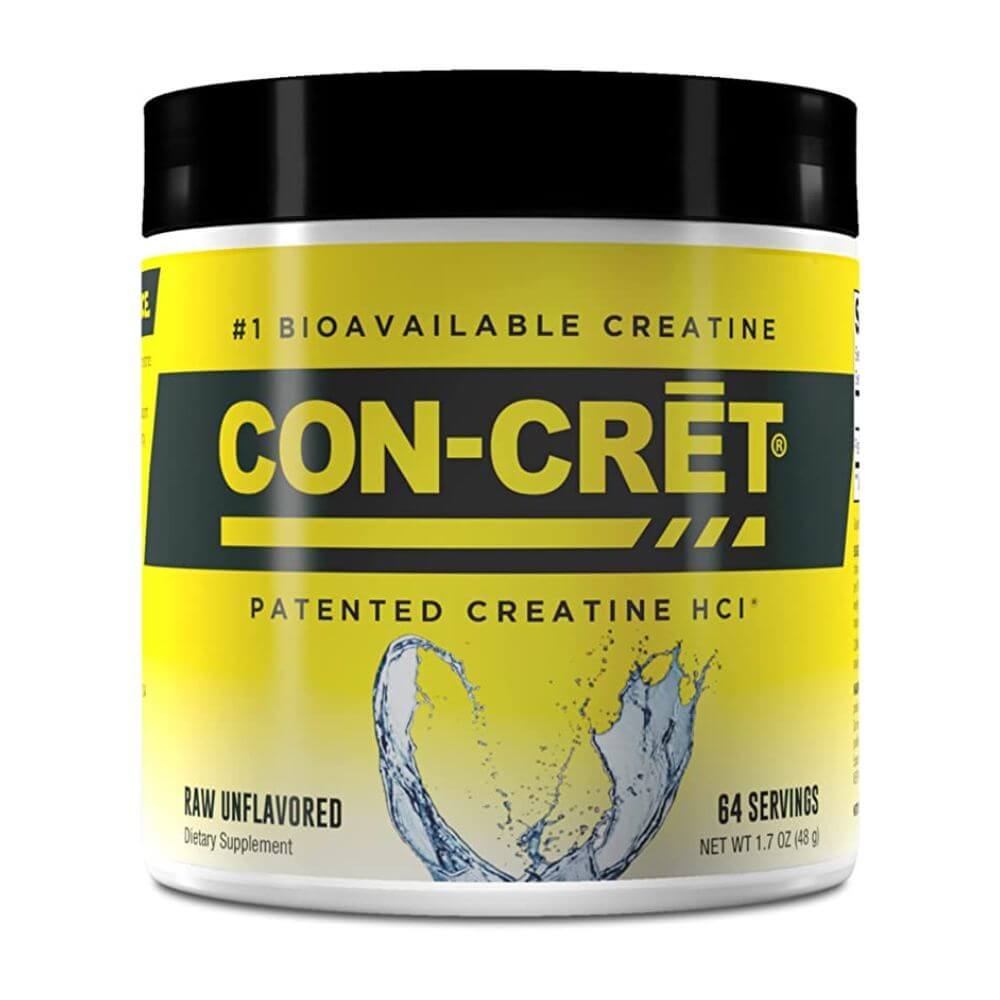
Product Highlights
- Claimed to be the #1 bioavailable creatine
- 750 mg of microdosed creatine HCl
- No loading, cycling, cramping, bloating, or retaining water
- Stimulant-free
- Formulated to improve energy, strength, endurance, and recovery
- Claimed benefits: Muscular strength, reproductive wellness, cognitive function, immune and heart health
- Available flavors include raw, fruit punch, hibiscus, lemon-lime, and pineapple
Pros & Cons
Pros
- No added sugar or artificial flavors
- Many users enjoy the taste
- Dissolves well in hot or cold liquid
- Reportedly highly effective
Cons
- Serving size depends on your weight, so the servings per container varies
- Consider ordering directly from manufacturer
Bottom Line
Marketed as the number one bioavailable creatine, CON-CRET Creatine delivers 750 milligrams of microdosed creatine HCl per serving. This supplement is formulated to support muscular strength, reproductive wellness, cognitive function, and immune and heart health. CON-CRET Creatine is available in several flavor options which seemed to be liked by the majority of users. Unlike some other forms of creatine, CON-CRET claims that with CON-CRET Creatine HCl, there is no need for loading or cycling.
A Quick Look at Con-Cret Creatine
Con-Cret Creatine comes from supplement manufacturer Promera Sports. They make a few products, but the most well-known is definitely Con-Cret creatine, which is a patented creatine hydrochloride (creatine HCl) powder.
Each serving of Con-Cret contains 750 milligrams, or three-fourths of a gram, of creatine HCl. That’s an extremely low dose, considering the clinical recommendation of 3 to 5 grams per day for maintenance (not to mention the clinical recommendation of 20 to 25 grams per day for a creatine loading phase).
Promera claims that Con-Cret is the most bioavailable creatine supplement ever, suggesting that your body can do more with less creatine—a fact that would have to be true to make this low-dose creatine product worth the cost.
But is it true? Let’s find out.
RELATED: Creatine vs Pre-Workout
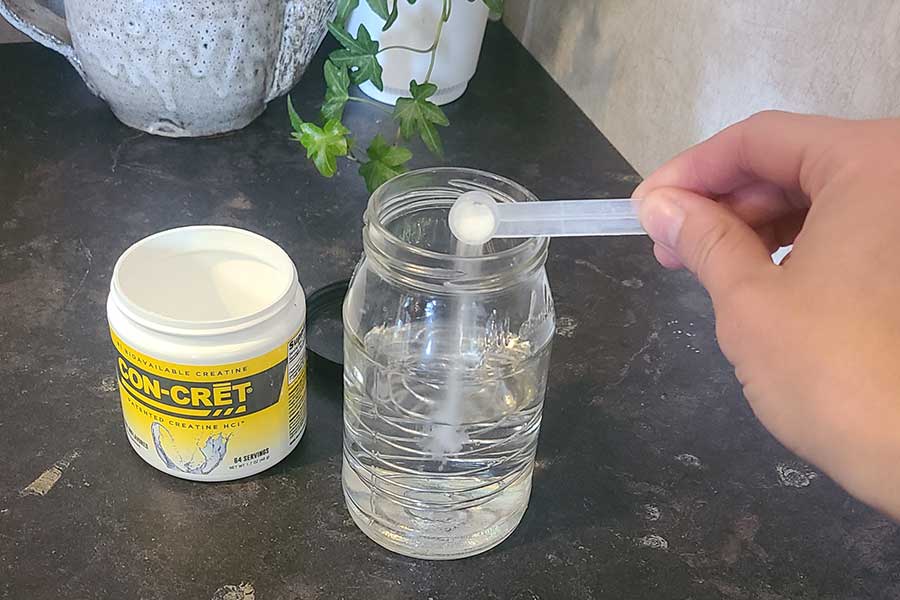
Before You Buy
- This creatine powder contains just 750 milligrams—less than 1 gram—of creatine HCl per serving. That is far, far below the clinically recommended maintenance dose of 3 to 5 grams per day.
- Creatine HCl has not been proven to be more effective at building muscle or improving physical performance than creatine monohydrate, nor has any other novel creatine product. More research is needed to determine whether or not newer forms of creatine are better, according to a 2022 systematic review in the Journal of Strength and Conditioning Research2.
- The above study also found that creatine monohydrate is the least expensive creatine supplementation option.
Is Con-Cret Creatine Worth It?
Con-Cret Creatine HCl costs about 40 to 45 cents per serving depending on where you buy it; it’s a little bit cheaper on the Con-Cret website than on Amazon for the 64-serving tub. A price per serving of 40 cents sounds great until you realize that one serving of Con-Cret contains less than 1 gram of creatine.
On the other hand, something like Optimum Nutrition Micronized Creatine Monohydrate costs 30 to 70 cents per serving, depending on the container size and the retailer—and it contains 5 grams of pure creatine monohydrate per serving. Not only can you get it for less cash per serving than Con-Cret, but you’re getting more creatine per serving.
Let’s do some quick math.
On the Optimum Nutrition website, a 60-serving container costs $39.99 at the time of writing. In those 60 servings, there are 300 total grams of creatine. Let’s say the nutrition label said that one serving was 1 gram of creatine, which would mean the tub contained 300 servings. That would make the price per serving about 13 cents. And you’d still be getting 1 gram of creatine compared to Con-Cret’s 0.75-gram serving.
All of that to say… Between the pricing disparity and the lack of research proving creatine HCl to be more effective than creatine monohydrate, I wouldn’t recommend Con-Cret to my friends.
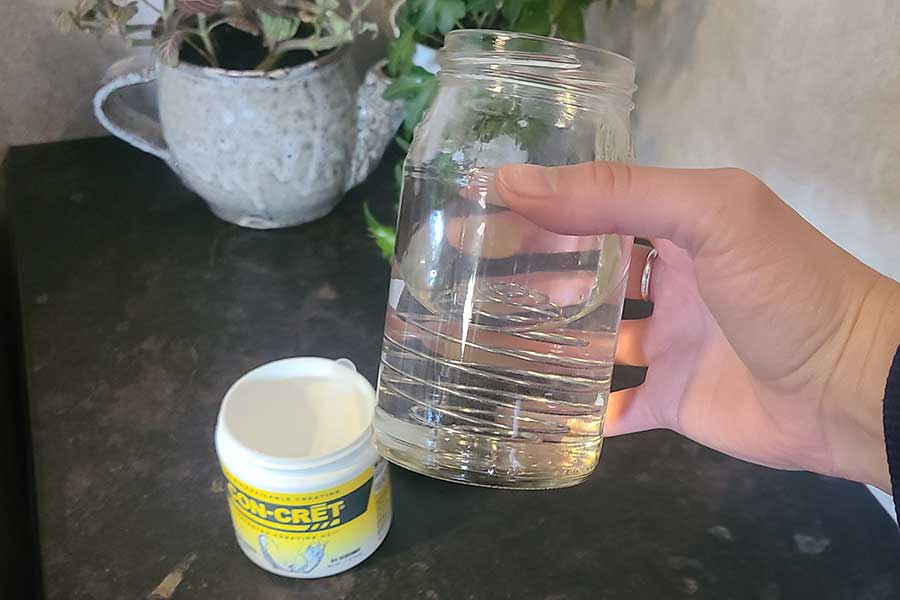
Registered dietitian Destini Moody agrees: “This dosage is much too low and based on a misinterpretation of how Creatine HCl works” she says. “Creatine HCl definitely mixes more neatly in water and research has shown that it may be more bioavailable than creatine monohydrate, but the science on this is shaky and hasn’t been proven on a large scale despite the thousands of studies that have been done on creatine.”
“People have taken this bioavailability prospect and ran with it, making people believe that you can take a lower dosage of creatine HCl and get the same results,” Destini continues. “This is nothing more than gym-lore and has not been proven, however.”
Good for:
- Individuals who want to “micro-dose” creatine (but you should know there isn’t any research to support this)
- Anyone who prefers creatine HCl over creatine monohydrate
- People who want a flavored creatine powder sweetened with stevia
Not recommended for:
- People who avoid stevia (flavored options only)
- Individuals who want a full dose of creatine per scoop
- People who want the most-studied type of creatine available, which is creatine monohydrate
Con-Cret Creatine Vs.
We have tested more than 40 creatine products on the market. Here’s a look at how Con-Cret stacks up against top competitors like Transparent Labs and Legion.
- Transparent Labs Creatine – More flavors and third-party tested
- Legion Recharge Post-Workout with Creatine – Higher creatine dose
- Nutricost Creatine – Creatine monohydrate option
- Sports Research Creatine – Unflavored option
- Onnit Creatine – Budget-friendly option

|
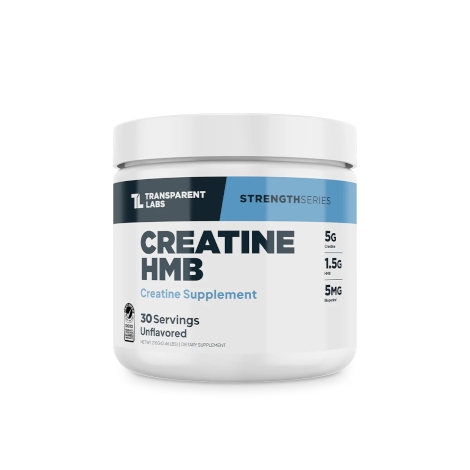
|
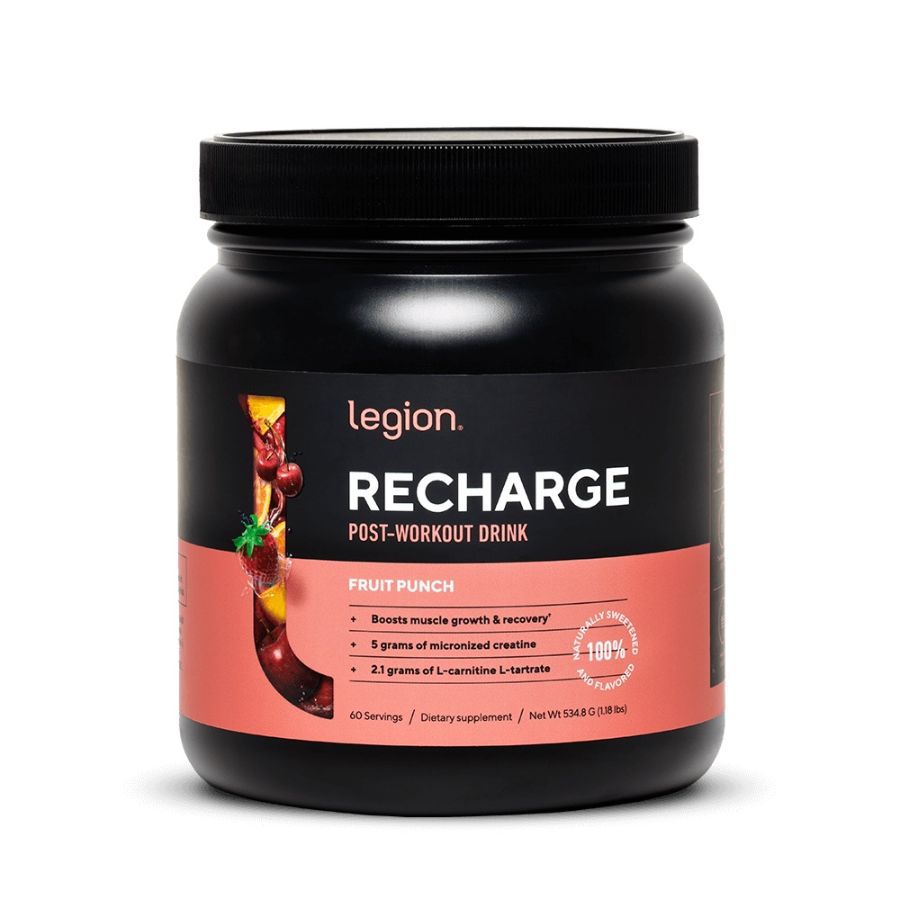
|
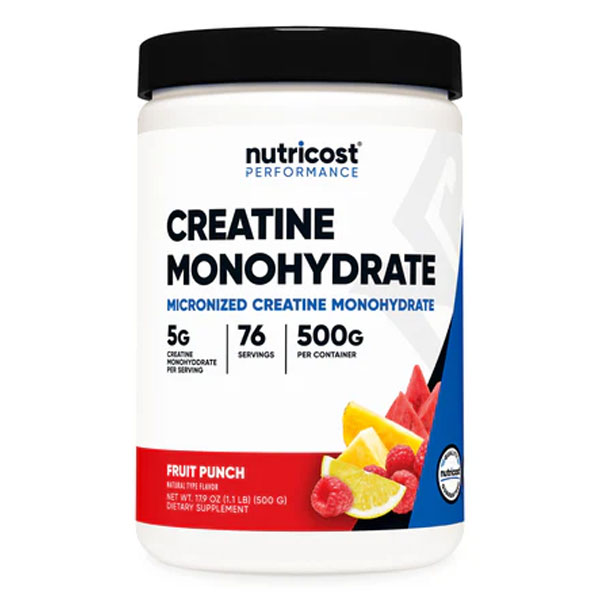
|
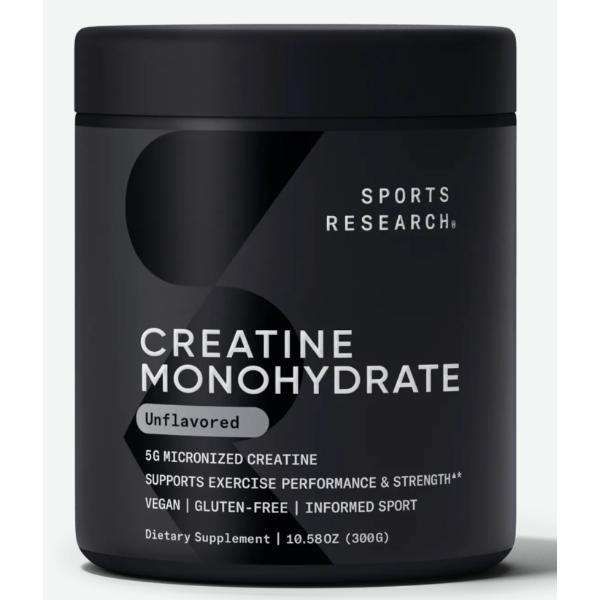
|
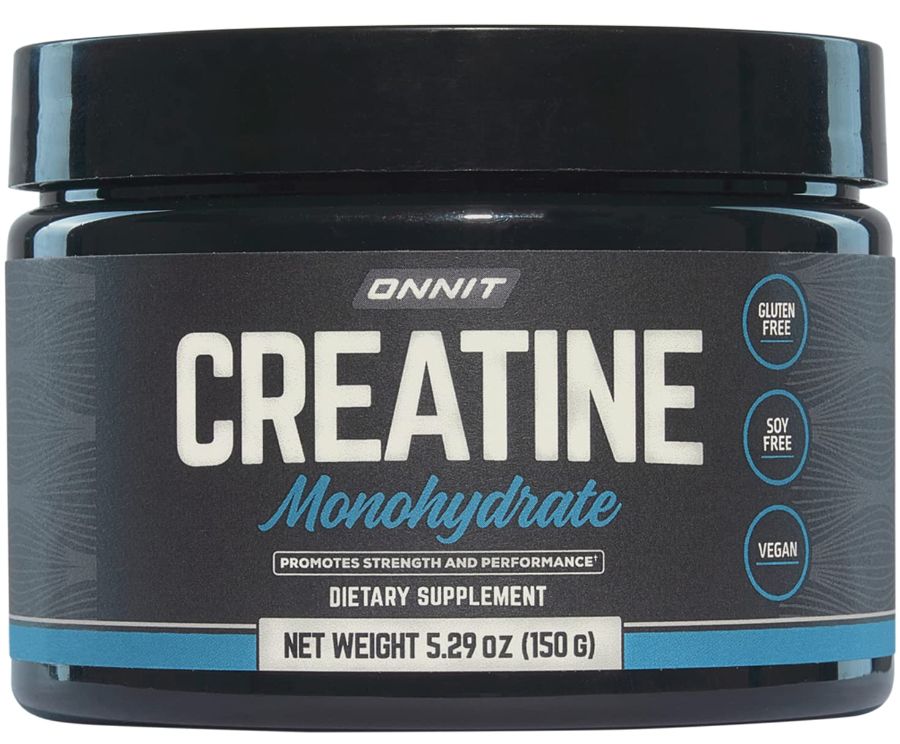
|
|
| CON-CRET Creatine | Transparent Labs Creatine | Legion Recharge Post-Workout with Creatine | Nutricost Creatine | Sports Research Creatine | Onnit Creatine | |
|
Rating
|
||||||
| Price Per Serving | $0.39 to $0.46 | $1.67 | $1.00 – $1.33 | $0.33 | $0.31 – $0.33 | $0.50 |
| Grams Per Serving | 7.5 | 5 g | 5 g | 5 g | 5 g | 5 g |
| Third-party Tested? | — | — | ||||
| Type | Creatine hydrochloride | Creatine monohydrate | Micronized creatine monohydrate | Creatine monohydrate | Creatine monohydrate | Micronized creatine monohydrate |
| Flavors | Multiple | Multiple Flavors | Multiple Flavors | Multiple Flavors | Unflavored | Unflavored |
|
|
|
Con-Cret Creatine Specs
| Price per serving | 29.99 on Amazon; 24.99 on the manufacturer website for 64 servings—$0.39 to $0.46 per serving |
| Creatine type | Creatine hydrochloride (creatine HCl) |
| Creatine per serving | 750 mg |
| Serving size | 750 mg |
| Calories per serving | 0 |
| Flavors | Raw Unflavored, Fruit Punch, Hibiscus, Lemon Lime, Pineapple, Raspberry |
| Sugar per serving | 0 g |
| Sweeteners | Stevia leaf extract (none in Raw Unflavored) |
| Other key ingredients | None |
| Other ingredients | In flavored options: natural flavors, Reb A (Stevia rebaudiana leaf extract) |
Experience Using Con-Cret Creatine
Frieda Johnson, GGR editor and product tester, tried Con-Cret Creatine. Frieda has been taking creatine supplements daily for nearly a decade, and she states, “I can’t tell if there is any difference between taking this and taking my usual creatine monohydrate.”
However, she did experience a bit of stomach discomfort after taking it. She’s not sure of the cause, though. “It upsets my stomach if I try to drink it just in water, but I think that’s just from how sour it is,” she says. “It doesn’t bother me if I mix it with juice.”
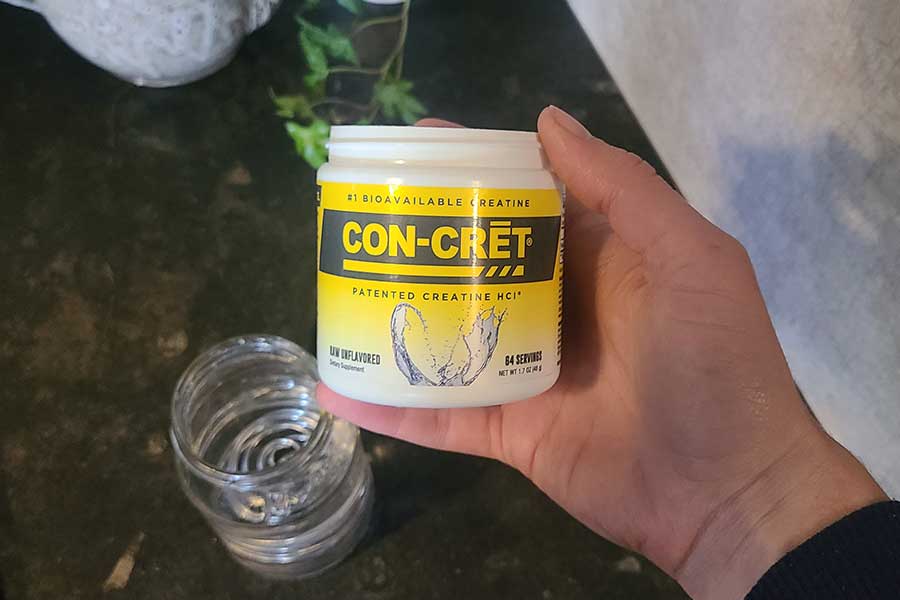
Destini says that gastrointestinal distress is one big reason she doesn’t recommend creatine HCl. “The stomach hates HCl,” she says. “It doesn’t taste good and it can take the gut weeks to adjust to the harshness of the compound.”
RELATED: Can You Dry Scoop Creatine?
Price Per Serving
As mentioned earlier, this product costs about 40 to 45 cents per serving, which sounds inexpensive and in line with typical creatine prices. That is, until you see that the serving size contains less than 1 gram of creatine per serving. This makes Con-Cret extremely expensive compared to other options out there, particularly creatine monohydrate supplements.
Other creatine HCl supplements, such as Kaged Creatine HCl, sport similar costs per serving. Kaged Creatine HCl has the same 750-milligram serving and costs $24.99 per 75-container tub on the Kaged website. Still, it’s a little cheaper than Con-Cret at about 33 cents per serving.
Formulation
Con-Cret is composed of pure creatine hydrochloride. There are no other ingredients in the Raw Unflavored version. In the flavored options, you will find “natural flavors” and stevia leaf extract on the ingredients list.
Now we can really dig into the purported benefits of creatine HCl versus creatine monohydrate.
Proponents of creatine HCl claim that this compound—which is creatine bonded to hydrochloric acid—promotes more efficacious uptake of creatine into the bloodstream and thus into the body’s phosphocreatine energy system, where creatine plays a critical role in producing adenosine triphosphate, or ATP. ATP is the molecule that acts as energy currency during muscular contraction, and creatine’s role in producing ATP is why the supplement is so effective at increasing muscle mass, increasing strength, and enhancing overall performance.
The argument is that hydrochloric acid makes creatine more water-soluble, which is true. One 2010 study in the Journal of Dietary Supplements3 even found that creatine HCl is 38 times more soluble than creatine monohydrate. Creatine HCl is also thought to be more bioavailable due to increased permeability. This means that creatine HCl is more easily able to absorb through the intestinal epithelium, which gives it theoretical benefits over creatine monohydrate.
Indeed, in a 2018 trial4 performed on rats, creatine HCl was found to have 66% bioavailability compared to 17% bioavailability of creatine monohydrate. The authors called for “further examination of improved dosage formulations of creatine” with these results since this, theoretically, would mean that you can get the same results with less creatine. But, as Destini points out, “There is no available human evidence to date that the dosage of Creatine HCl is different from that of creatine monohydrate.”
The problem is that the benefits remain theoretical: Creatine monohydrate is the form of creatine that “was used in early studies to assess bioavailability, determine proper dosages, and assess the impact of oral ingestion of creatine on blood creatine and intramuscular creatine stores,” according to a 2021 literature review in the Journal of the International Society of Sports Nutrition5.
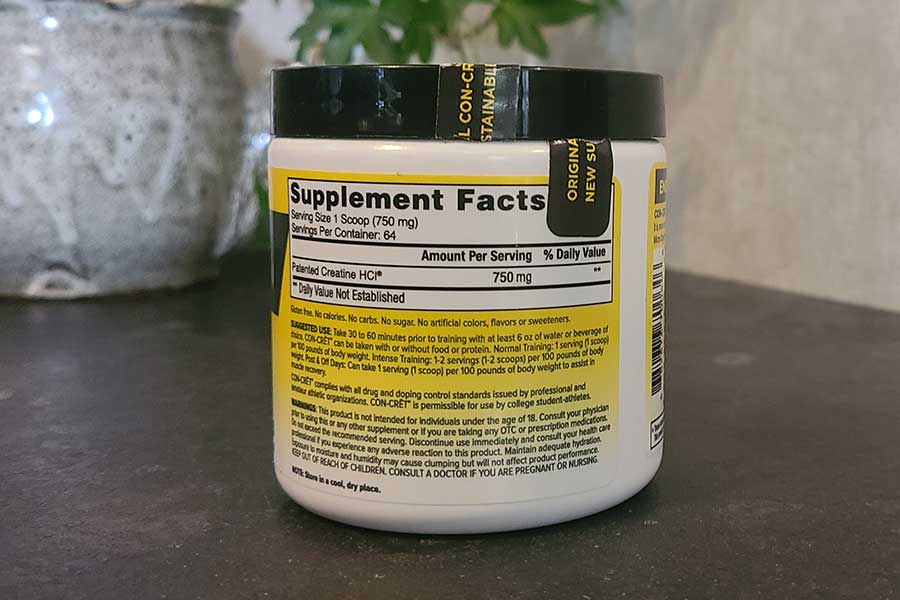
In fact, there isn’t much research on creatine HCl at all in comparison to the vast amount of research on creatine monohydrate, let alone research directly comparing the bioavailability or efficacy of creatine HCl to creatine monohydrate.
For example, the aforementioned 2022 literature review in the Journal of Strength and Conditioning Research2 looked at 17 randomized, placebo-controlled clinical trials that examined the effects of various creatine supplements on performance, and none of the studies deemed acceptable for inclusion had any mention of creatine HCl.
Additionally, the 2021 literature review cited from the Journal of the International Society of Sports Nutrition5 looked at nearly 30 studies to try to answer the question, “Are other forms of creatine similar or superior to monohydrate?” There is not one mention of creatine hydrochloride in this review.
The reason for exclusion of studies from literature reviews and meta-analyses is usually some combination of poor study design, short study duration, not enough participants, research performed on animals and not humans, and conflicts of interest.
In any case, this all points to a lack of research. It’s really difficult to recommend creatine HCl over creatine monohydrate, despite the fact that creatine HCl is more water-soluble and permeable than creatine monohydrate.
In the studies I did find comparing the two types, no significant benefits were found in favor of HCl compared to monohydrate. A 2020 controlled trial in the journal Science & Sports6, for instance, concluded that there were no significant differences in vigor, power, testosterone, or cortisol in study subjects who took HCl or monohydrate, despite the purported increased bioavailability of HCl.
A 2015 study in the journal Food and Nutrition Science7 concluded that there were no statistically significant differences in performance among recreational weightlifters who took creatine HCl or monohydrate, although dose differences among creatine HCl groups did result in changes in body fat mass (and not in the monohydrate group).
The bottom line is that creatine monohydrate remains the most well-studied form of creatine, and research on novel forms of creatine have yet to prove increased efficacy over the legacy type.
Taste and Solubility
Frieda wasn’t a big fan of the taste of Con-Cret Creatine. She tried the Raw Unflavored version. It’s not just Con-Cret Creatine HCl that she doesn’t like, though.
“The Raw Unflavored is very sour, like all creatine HCl I’ve tried,” she says. “I can’t handle drinking it just in water unless it’s extremely watered down, but it’s OK mixed in juice.”
However, it does blend very well, Frieda says. “In water, you can’t even tell it’s there; it just looks like water,” she notes.
Side Effects
Commonly reported negative side effects of creatine are bloating and water retention, weight gain, and dehydration. Our product tester didn’t experience any of those side effects, but she did experience some minor gastrointestinal distress when taking Con-Cret. She thinks it’s because of the super sour taste of the creatine HCI when mixed with water, since it doesn’t bother her when she mixes it with juice.
If you, like our tester Frieda, tend to be put off by sour or chemical tastes, consider mixing Con-Cret with a flavored drink, such as an electrolyte drink. It’ll taste better, and as a bonus, will help with hydration.
RELATED: Does Creatine Cause Hair Loss?
Third-Party Testing
Based on what I can see online, Con-Cret is not third-party tested by an independent lab. This doesn’t necessarily mean it is a product you should avoid, but if you’re an athlete who is subject to drug testing, it would be wise to choose a product that is NSF Certified Safe for Sport or certified banned substance-free by the Banned Substances Control Group.
Con-Cret Creatine vs Thorne Creatine
Thorne Creatine
Thorne Creatine
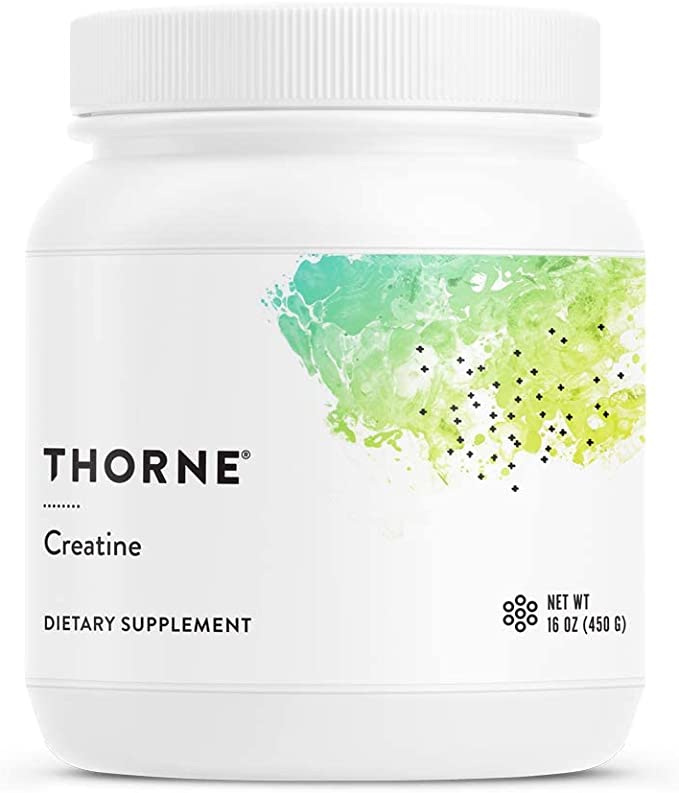
Product Highlights
- Creatine monohydrate
- Supports muscle strength and size
- May improve cognitive function
Pros & Cons
Pros
- Subscribe and save 20%
- 1 ingredient: creatine monohydrate
- NSF Certified for Sport
- Gluten-, dairy-, and soy-free
- Made in the United States
Cons
- Only available as unflavored
- Available in 1 container size, 90 servings
- New formula due to supply chain issues
- Some customer complaints of grittiness
Bottom Line
Thorne Creatine provides 5 grams of creatine per scoop. They recommend taking it in the morning to improve brain performance or near a workout to help improve muscle strength and size. Customer reviews of this product are generally positive, although Thorne has changed their formula recently due to supply chain issues, and some long-time users do not like the new version as much.
Thorne Creatine is a popular creatine monohydrate supplement. It’s pure micronized creatine monohydrate powder, and it provides 5 grams of creatine per 5-gram serving. It’s unflavored, unsweetened, and literally nothing more than creatine monohydrate powder. In this chart, you can see how Con-Cret creatine HCl compares to Thorne creatine monohydrate.
| Con-Cret Creatine HCl | Thorne Creatine | |
| Price per serving | 39 to 46 cents | 44 cents |
| Creatine type | Creatine hydrochloride (creatine HCl) | Creatine monohydrate |
| Creatine per serving | 750 mg | 5 g |
| Serving size | 750 mg | 5 g |
| Calories per serving | 0 | 0 |
| Flavors | Raw Unflavored, Fruit Punch, Hibiscus, Lemon Lime, Pineapple, Raspberry | Unflavored |
| Sugar per serving | 0 g | 0 g |
| Sweeteners | Stevia leaf extract (none in Raw Unflavored) | None |
| Other key ingredients | None | None |
| Other ingredients | In flavored options: natural flavors, Reb A (Stevia rebaudiana leaf extract) | None |
Read my full Thorne Creatine review for more details on this creatine product.
Customer Experience
The customer experience with Promera Sports seems pretty straightforward, but it’s not the best compared to some other supplement companies. The refund policy stipulates that you may return products for a store credit within 45 days of ordering the product, but the product must be unopened. Requests for a refund or exchange can be made within 30 days, and there is a 30-day money-back guarantee for items purchased through the Con-Cret website.
Ordering Con-Cret Creatine
You can order Con-Cret directly from the manufacturer or on Amazon. It may also be available at your local GNC or The Vitamin Shoppe. Before buying, make sure to check retailer policies, because purchases from third-party retailers aren’t always eligible for returns and refunds.
Customer Reviews
Customer reviews of Con-Cret Creatine are mostly positive. On Amazon, the product has a rating of 4.4 out of 5 stars with almost 4,000 reviews.
Positive reviews indicate that this creatine HCl supplement is easier on the stomach than creatine monohydrate. Several reviewers have written that creatine monohydrate results in cramping or gastrointestinal distress, while HCl does not. Other positive reviews appreciate the solubility of the powder and the tastes of the flavored options.
Of the minimal negative reviews, most say that the Raw Unflavored has an unpleasant taste, which is in line with our reviewer’s thoughts.
Final Verdict of Our Con-Cret Creatine Review
Promera Sports claims that with Con-Cret, microdosing is sufficient to reap all of the well-known benefits. But based on our research, creatine monohydrate still reigns supreme, and there is no standardized clinically recommended dose for creatine HCl.
For those reasons, we’d recommend a monohydrate powder over creatine HCl. That said, if you are set on purchasing creatine HCl, Con-Cret is a fine product with label transparency and a reasonable price per serving compared to other creatine HCl powders.
Con-Cret Creatine Full Rating
Con-Cret Creatine
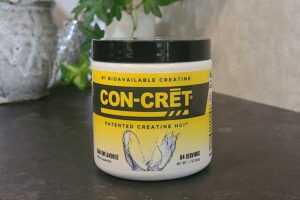
Is creatine HCl better than creatine monohydrate? Find out in our Con-Cret Creatine review.
Product Currency: USD
Product Price: 25
Product In-Stock: InStock
3
Con-Cret Creatine FAQs
What is the best creatine?
Our picks for the best creatine supplements are:
Best Creatine Supplement Overall: Transparent Labs Creatine HMB
Best Creatine Gummy: Swoly Creatine Gummy
Best Creatine Supplement for Post-Workout: Legion Recharge
Best Creatine Monohydrate: Xwerks Lift
Best Creatine Supplement for Cutting: Kaged Creatine HCl
Best Creatine Supplement for Athletes: Onnit Creatine Monohydrate
Best-Tasting Creatine Supplement: Jacked Factory Growth Surge
Best Unflavored Creatine Supplement: Jacked Factory Creatine Monohydrate
Best Pre-Workout with Creatine: Kaged Pre-Kaged Elite
Best Creatine for Bulking: Crazy Nutrition CRN-5
Best Creatine Supplement for Beginners: BulkSupplements Creatine Powder
Best Creatine for Muscle Growth: Redcon1 Tango Creatine
Best Budget Creatine Supplement: Optimum Nutrition Micronized Creatine Monohydrate
Best Vegan Creatine Supplement: Naked Nutrition Naked Creatine Monohydrate
Best Creatine Supplement Capsules: Optimum Nutrition Micronized Creatine Capsules
What are the benefits of creatine?
The primary benefits of creatine are muscle growth and performance enhancement, which is why this supplement is so popular in the bodybuilding, powerlifting, CrossFit, and weightlifting communities.
Should I take creatine or protein powder?
Creatine and protein powder are completely different supplements, although a casein, vegan, or whey protein shake can be complementary to creatine and vice versa. Both types of supplements are backed by research proving that they can assist with muscle growth, recovery, and performance.
Is creatine a fat burner?
No, creatine is not a fat burner nor a weight loss supplement in any regard. Taking creatine in conjunction with a periodized and smartly designed weight training program might help you build lean muscle mass and lose body fat, which can give the illusion of reducing body weight. Learn more in our guide, “Does Creatine Help You Lose Weight?”.
These statements have not been evaluated by the Food and Drug Administration. This product is not intended to diagnose, treat, cure, or prevent any diseases.
References
- Butts J, Jacobs B, Silvis M. Creatine Use in Sports. Sports Health. 2018;10(1):31-34. doi:10.1177/1941738117737248
- Fazio C, Elder CL, Harris MM. Efficacy of Alternative Forms of Creatine Supplementation on Improving Performance and Body Composition in Healthy Subjects: A Systematic Review. J Strength Cond Res. 2022;36(9):2663-2670. doi:10.1519/JSC.0000000000003873
- Brandon T. Gufford, Kamaraj Sriraghavan, Nicholas J. Miller, Donald W. Miller, Xiaochen Gu, Jonathan L. Vennerstrom & Dennis H. Robinson (2010) Physicochemical Characterization of Creatine N-Methylguanidinium Salts, Journal of Dietary Supplements, 7:3, 240-252, DOI: 10.3109/19390211.2010.491507
- Alraddadi EA, Lillico R, Vennerstrom JL, Lakowski TM, Miller DW. Absolute Oral Bioavailability of Creatine Monohydrate in Rats: Debunking a Myth. Pharmaceutics. 2018;10(1):31. Published 2018 Mar 8. doi:10.3390/pharmaceutics10010031
- Antonio J, Candow DG, Forbes SC, et al. Common questions and misconceptions about creatine supplementation: what does the scientific evidence really show?. J Int Soc Sports Nutr. 2021;18(1):13. Published 2021 Feb 8. doi:10.1186/s12970-021-00412-w
- M. Tayebi, H. Arazi, Is creatine hydrochloride better than creatine monohydrate for the improvement of physical performance and hormonal changes in young trained men?, Science & Sports, Volume 35, Issue 5, 2020, Pages e135-e141, ISSN 0765-1597, https://doi.org/10.1016/j.scispo.2019.07.013.
- França, E. , Avelar, B. , Yoshioka, C. , Santana, J. , Madureira, D. , Rocha, L. , Zocoler, C. , Rossi, F. , Lira, F. , Rodrigues, B. and Caperuto, É. (2015) Creatine HCl and Creatine Monohydrate Improve Strength but Only Creatine HCl Induced Changes on Body Composition in Recreational Weightlifters. Food and Nutrition Sciences, 6, 1624-1630. doi: 10.4236/fns.2015.617167.


